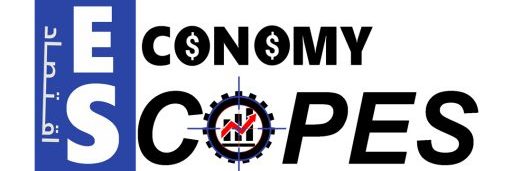**”مشهد 2006 يتكرر… واحتكار مافيا قديمة جديدة يتحكم بلبنان!”**
بينما تنشغل الأوساط الحكومية بمواضيع النازحين والحرب وتقديم الدعم للقطاع الصحي في ظل العدوان الإسرائيلي الوحشي على لبنان، يستغل التجار هذه الظروف لزيادة أرباحهم من خلال فرض زيادات غير مقبولة على الأسعار، خاصةً على الاحتياجات الأساسية، رغم استقرار سعر الصرف.
يشرح رئيس جمعية حماية المستهلك زهير برو في حديث له مع “ليبانون ديبايت” أن “غياب اقتصاد طبيعي ومستقر هو السبب الرئيسي، وهذه المشكلة تعود إلى ما قبل الحرب”. ويشير إلى أنه “في الفترة التي سبقت الانهيار في عام 2019، كان لبنان هو الأغلى في المنطقة بزيادة تصل إلى 30%”.
برو يعتبر أن هذه القضية ليست جديدة، بل هي نتيجة لوجود سوق احتكاري ومصالح شخصية، وغياب الدولة بمفهومها التقليدي، بالإضافة إلى سيطرة مافيات على الأسواق والمصارف. ويضيف أن معظم الأنشطة الاقتصادية تعود إلى الطبقة السياسية، حيث يوجد “زواج مقدس” بين السياسة والتجارة.
وتمتد جذور هذه المشكلة إلى العهود الأولى للاحتلال الفرنسي، حيث حصل التجار على امتيازات تجارية أدت إلى نشوء عائلات سياسية كبيرة في لبنان. ويجمع برو جميع هذه الأسباب مع الأزمة الاقتصادية في 2019، نهب الودائع، والحرب الحالية، لتشكيل احتكار رهيب يبني الثروات على حساب المواطن والوطن.
وعند الحديث عن أسباب ارتفاع الأسعار رغم توافر المواد وعدم انقطاع حركة الاستيراد، يوضح برو أن التجار يستغلون الفرص، مشيرًا إلى أن “غياب الدولة يساهم في الانفلات”. ويعبر عن معاناتنا الطويلة من غياب الدولة، وحتى عند وجودها، تكون موجهة لخدمة التجار والمصارف.
فيما يتعلق بمساعدات الإغاثة، يستذكر برو نهب المساعدات خلال حرب تموز 2006 وكيف تم توزيعها وفق المحسوبيات والطوائف، مشيرًا إلى أن اللبنانيين نشأوا على اقتناص الفرص نتيجة لغياب الدولة.
أما بشأن قطع أوصال لبنان مع الخارج، لا يشعر برو بالقلق، معتبرًا أن هناك طرقًا ما زالت تسمح بتهريب السلع الأساسية. ولكن المشكلة تكمن في الاحتكار وارتفاع الأسعار.
يعود برو إلى عام 2006، مشيرًا إلى أننا بعيدون عن الحصار الذي وقع في ذلك الوقت، ويعتبر أن الهم الرئيسي اليوم هو أن تتحرك الدولة وتنظم الوضع. لكنه يتساءل: “هل لدينا دولة؟” بعد عام من المعارك، لم يتم التحضير للسيناريو الحالي.
وينتقد برو الحكومة التي تنتظر المساعدات، مشيرًا إلى أن قسمًا منها سيذهب إلى جيوب المافيا المتحكمة، معتبرًا أن هذا يعد فرصة لهم، لكنه مأساة للمواطنين.
المصدر: ليبانون ديبايت
**”The 2006 Scene Repeats… An Old-New Mafia Controls Lebanon!”**
As government circles focus on issues related to refugees, war, and providing support to the healthcare sector amidst the brutal Israeli aggression against Lebanon, traders are taking advantage of these circumstances to increase their profits by imposing unacceptable price hikes, especially on essential goods, despite the stability of the exchange rate.
Zuhair Bro, head of the Consumer Protection Association, explained in an interview with “Lebanon Debate” that “the primary reason is the absence of a stable and natural economy, a problem we have been facing even before the war.” He notes that “in the period leading up to the 2019 collapse, Lebanon was 30% more expensive than the rest of the region.”
Bro considers this issue an old one, arising from an oligopolistic market, personal interests, and the absence of a functional state. He points out that the majority of economic activities are owned by the political class, highlighting the “sacred marriage” between politics and trade.
This issue has roots dating back to the early French occupation, where traders received commercial privileges that allowed the emergence of prominent political families in the country. Bro combines all these reasons with the economic crisis of 2019, the looting of deposits, and the current war, which have led to a significant monopoly on wealth at the expense of citizens and the nation.
Regarding the reasons for rising prices despite the availability of goods and uninterrupted import activity, Bro clarifies that traders are exploiting opportunities, emphasizing that “the absence of the state contributes to chaos.” He expresses the long-standing suffering from the absence of a state, and even when it exists, it primarily serves traders and banks.
Concerning relief aid, Bro recalls the looting of assistance during the July 2006 war and how it was distributed based on favoritism and sects, noting that Lebanese citizens have learned to seize opportunities in the absence of a state.
As for the potential disruption of Lebanon's connections with the outside world, Bro is not concerned, believing that there are still routes for smuggling essential goods. However, the problem lies in monopolies and rising prices.
Reflecting on 2006, Bro notes that we are far from the siege that occurred at that time. He believes the main concern today is for the state to take action and regulate the situation. But he questions, “Do we have a state?” After nearly a year of battles, there has been no preparation for the current scenario.
Bro criticizes the government for waiting for aid, stating that part of it will go to the pockets of the controlling mafia, seeing it as an opportunity for them but a tragedy for the citizens.
Translated by economyscopes team






